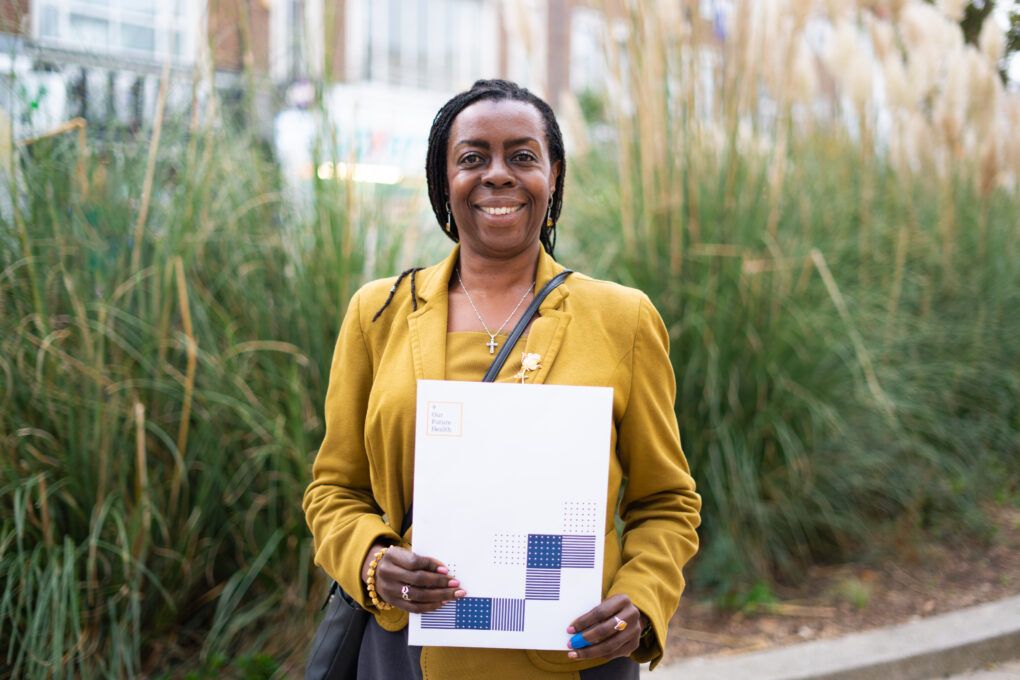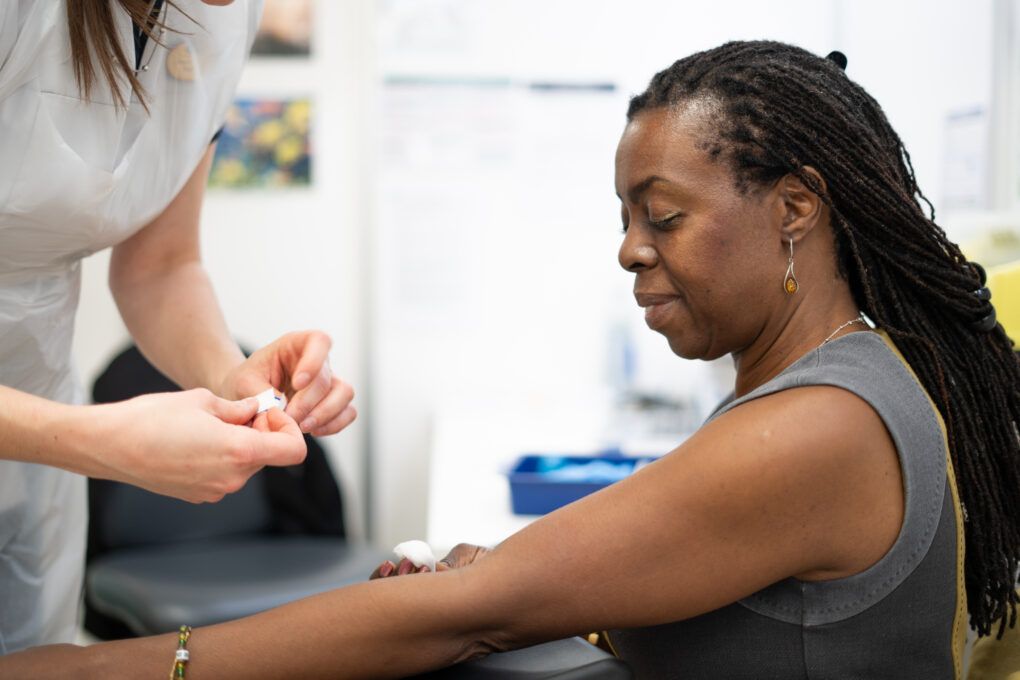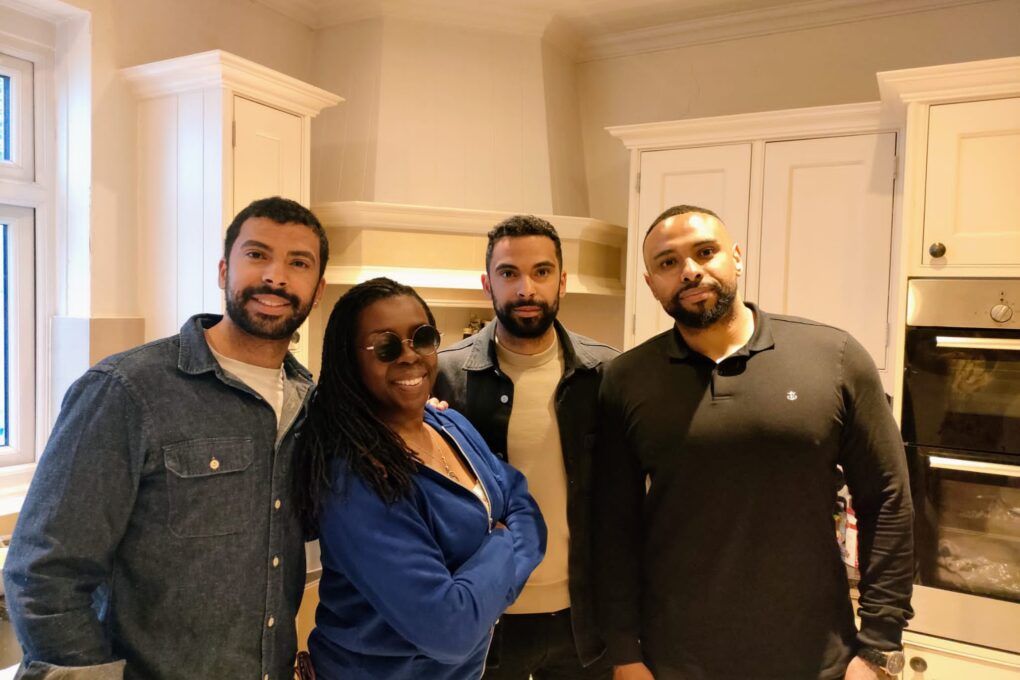‘I’m delighted to take part – I hope more people from Black communities join with me’
Shane Morrison-McCabe grew up in Northwest London, a child of Jamaican parents from the Windrush Generation. Early in her life, she knew she wanted to work in healthcare.
In 1985, she got her first job as a pediatric nurse – and immediately she knew she’d made the right decision. From there, Shane started to climb the ladder in the NHS. Amongst other roles, she worked as a quality lead, a director of health modernatisation, and a divisional director. When she retired in 2023, she left as the chief operating officer at Queen Victoria Hospital NHS Foundation Trust.
“Once I reached the executive level, I was often the only person in the room who looked like me,” says Shane. “Because of that, I found myself leading on Black and minority ethnic steering groups. I was happy to take on these roles – but it was a big responsibility, too.”
Now that she’s retired, Shane is a keen singer and viola player, and plays county level pool in the Sussex Ladies’ team. She also does work with a GP surgery, and continues to advocate for Black and minority ethnic communities to be better represented in healthcare.
When Shane heard about Our Future Health, she realised it presented another way to support a cause close to her heart.
“Volunteering felt like an opportunity to represent the African-Caribbean community and help both my children and the NHS,” she says.
Why representation matters

Our Future Health is committed to building a resource that truly reflects the UK population. That way, new discoveries will work for everyone.
In the past, some groups have lacked representation in health research programmes. This includes people from Black, Asian and minority ethnic communities. It also includes people with lower incomes.
“It’s really important that Our Future Health is committed to reaching people who have been missed from health research in the past,” says Shane. “It wasn’t always the case with health research – and you can see the results in healthcare today.”
She points to heart disease, diabetes and high blood pressure as examples. Shane says she witnessed important advancements in the treatment of these conditions throughout her career.
“But some of the progress wasn’t strictly relevant to Black people. We remain at a higher risk of all three conditions compared to white people.
“That’s why I’m encouraging people from all backgrounds to join Our Future Health. Part of my philosophy for life is that we are all unique, and that’s a beautiful thing. Only you can be you, with the excellence that you alone can offer.
“I think that philosophy can apply to representation in health research, too.”
A positive cycle

Shane says there can be challenges when it comes to talking about health in some communities. She highlights cancer and mental health as examples.
“I know that the idea of taking part in health research can cause anxiety in some communities, such as the African-Caribbean community,” she says.
“I hope that, as research supported by Our Future Health emerges, people will see the true value in this programme. They’ll see that it’s helping people like them to receive more effective and targeted treatments and interventions.
“I do believe that will carry forwards and change the narrative of distrust around health research. We can create a positive cycle.”
Improving health outcomes across the board
Shane points to sickle cell disease (SCD) as an example of health research helping outcomes in the Black community.
SCD is a group of inherited health conditions that affect the red blood cells that carry oxygen around the body. While these cells are normally round and flexible, in SCD they are crescent-shaped and stiff, which makes it harder for them to move through blood vessels.
Sometimes the sickle cells cause blockages, which can lead to long episodes of severe pain called sickle cell crises, as well as damage to other organs and anaemia.
Around 15,000 people in the UK have SCD, with 1 in 4 people of West African heritage and 1 in 10 people of Caribbean heritage carrying the sickle cell gene.
“If both parents carry the sickle cell gene, there’s a high chance their children will be born with SCD,” says Shane. “Nowadays, genetic testing can be done to find out whether someone carries the gene, which can allow for more knowledge.
“As well as this, there’s greater understanding about what people with SCD can do to keep in good health and make it easier for the body to weather crises.
“It’s been incredibly interesting to watch happen, as it’s something that’s pertinent to the African-Caribbean population. Our greater knowledge of SCD has come from people taking part in health research.
“Could Our Future Health be a catalyst for health equality in other areas for Black and minority ethnic communities going forwards? I hope so.”
For the NHS, and future generations

Shane has three sons, James, Andrew and Alex. She also has two grandchildren – an 11-year-old granddaughter and a 10-year-old grandson.
“I’m grateful for them all. My hope is that because of the health research facilitated by Our Future Health, they will be able to be more proactive about our family’s medical history as they go through life – for example, our genetic predisposition to diabetes, glaucoma, and breast cancer.
“I’m also grateful for being able to enjoy a 38-year career in the NHS. It’s a special institution and the envy of the world in many ways.”
About Volunteer Voices
Volunteer Voices tell the stories of people who take part in our research programme. Often, they have experienced the devastating effects of a disease.
Joining Our Future Health does not help our volunteers in their battle with disease. They take part because they want to help improve healthcare for others in the future.

Let’s prevent disease together
By volunteering for Our Future Health, you can help health researchers discover new ways to prevent, detect and treat common conditions such as diabetes, cancer, heart disease, stroke and Alzheimer’s.